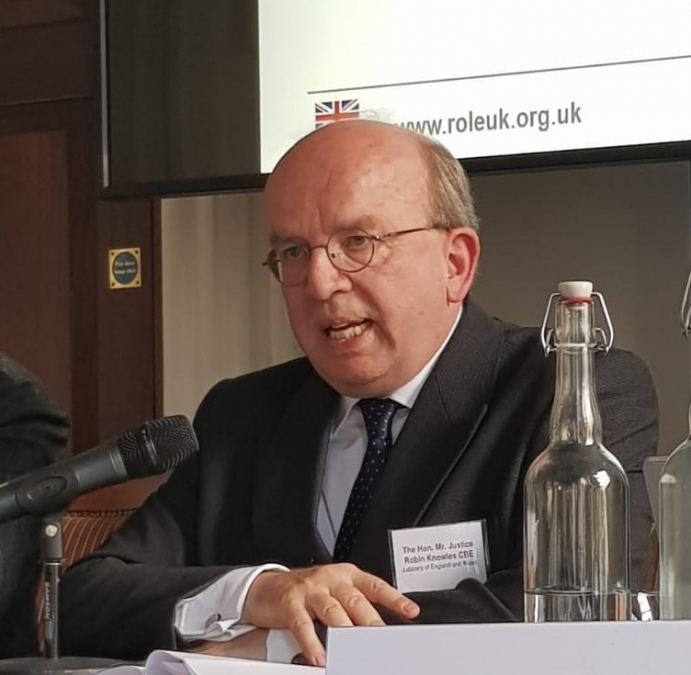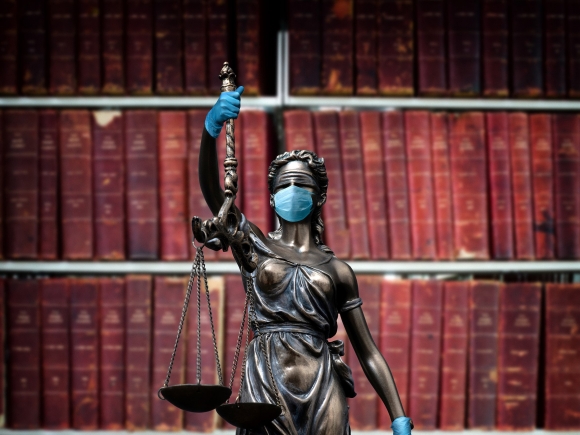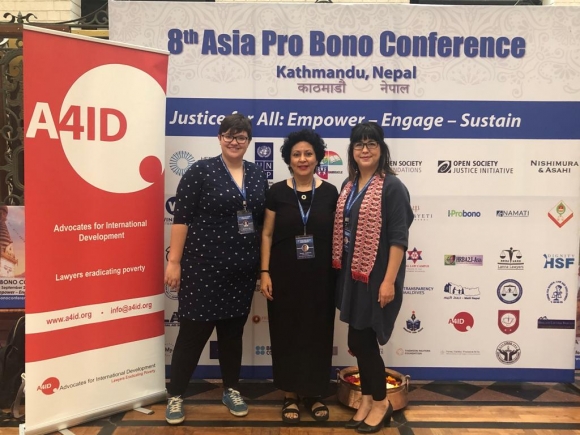24 July 2019

On 3 July, ROLE UK officially launched the programme’s new phase, which will run from April 2019 to March 2022, managed by Advocates for International Development (A4ID) and funded by the Department for International Development (DFID). Moderated by Yasmin Batliwala, A4ID CEO, speakers included Charlotte Hull, Head of the Governance, Open Societies and Anti-Corruption (GOSAC) unit at DFID; Mr Justice Robin Knowles CBE, High Court Judge and Chairman of the International Committee of the Judicial College of England & Wales; Roger Leese, Clifford Chance and Chair of A4ID; Naomi Barnard, ROLE UK Programme Manager; and Nick Horne, Governance Adviser, GOSAC. The event provided an opportunity to introduce the vision and priorities of the new programme to ROLE UK’s key stakeholders.
A highlight of the event was the address on the vision of the ROLE UK Programme, delivered by Justice Knowles. Emphasising that the rule of law is one of the most powerful forces for change and good – “The Great Enabler” – Justice Knowles urged attendees to make the most of its place in the development agenda through its inclusion in the Sustainable Development Goals.
The UK legal system has a particular role and responsibility to play in achieving the global development agenda, with UK legal experience and expertise sought after across the world. When this expertise is used with modesty and respect, it gives us an opportunity to make a difference in the many areas connected to rule of law, including equality, accountability and reduced poverty.
Strategic, Sustainable and ‘in Partnership’
Justice Knowles noted that the contribution of the programme has gone far beyond the funding support that it offers partners, building a framework to evaluate rule of law work. Through this framework, the ROLE UK programme has helped those engaged in rule of law work to reduce risks of duplicating activities; maximise their understanding of the complex context in which they are working; and minimise the likelihood that they will miss opportunities to engage with relevant stakeholders. Above all, ROLE UK enables its stakeholders to work strategically, to focus on what is sustainable, and to actively look for the opportunity to work in partnership.
Drawing on the story of the Judiciary of England and Wales’ work with their counterparts in The Gambia, Justice Knowles highlighted how ROLE UK’s support has enabled long-term engagement between the two judiciaries. The ROLE UK programme supported a Judge of the Gambia’s High Court, to spend an intensive week at the Commercial Court in London, alongside nominees from Uganda and Sri Lanka as part of the Standing International Forum of Commercial Courts (SIFoCC) observation programme. The peer-to-peer relationships that were subsequently formed have led to changes in practice on case management by The Gambian Judiciary and other areas of reform are underway. ROLE UK has also supported bilateral engagement between the two partners, including a five-day training for all magistrates in The Gambia by senior judges and representatives from the Commonwealth Magistrates and Judges Association (CMJA).
With ROLE UK support, the partnership between the Judiciary of England and Wales and The Gambian Judiciary has been developed strategically, expanding early engagement in commercial law to broader engagement with magistrates and judges, including coroner training and the drafting of The Gambia’s first sentencing guidelines on theft – an area of great importance to the general public. The focus on increasing capacity and reinforcing changes in practice, as well as the use of mentoring to maintain relationships remotely, has ensured the sustainability of this work.
Most importantly, the work of the respective judiciaries has been conducted in partnership throughout, responding to the needs and analysis of the justice sector of The Gambia as they address the many challenges faced in the country during this transitional period. Additionally, as the scope of the partnership has grown, the Judicial Office of England and Wales has been able to bring in an increasing range of international expertise and support, including the Commonwealth Magistrates and Judges Association, African Prisons Project and the International Law Books Facility.
From the creation of sentencing guidelines, to the delivery of law books by the International Law Book Facility; from the creation of new relationships on prison reform and court technology, to peer-to-peer sharing of learnings from an inaugural SIFoCC study visit through a Whatsapp group; results from the engagement between the two judiciaries have been varied, significant and sometimes unexpected, demonstrating the potential of well-judged interventions in the rule of law space.
.jpg)
“If Rule of Law is the great enabler, ROLE UK is the great facilitator”
As it enters its sixth year, the ROLE UK programme remains a mechanism to enable developing countries to access expertise from the UK pro bono legal sector to strengthen rule of law. The programme aims to achieve this by improving the policies, organisations and practices of legal and judicial systems and, in doing so, to reduce poverty. The Programme has now become an integral part of DFID’s Partnerships for Development (P4D), through the building of strategic partnerships between the UK legal sector and their counterparts in developing countries.
During the launch event, Charlotte Hull emphasised the unique potential of ROLE UK’s work with the legal sector, pointing out that the pro bono contribution of the UK legal sector is greater than DFID’s financial contribution. The added value of the programme is its ability to ‘bridge the gap’ for world-class UK legal expertise to engage in unfamiliar environments and offers the development tools needed to plan this work.
A4ID Chair, Roger Leese, spoke to the ways in which the ROLE UK Programme complements the existing work of the organisation, including A4ID’s pro bono brokerage services, learning and development work, and thought leadership, all delivered with the vision of enabling the law and lawyers to play their full role in the eradication of global poverty. Naomi Barnard, ROLE UK Programme Manager, outlined the programme’s new model, which encompasses support to rule of law partnerships and assignments, a knowledge hub drawing on lessons learned from the sector, and facilitating increased coordination between pro bono legal actors in the UK and beyond.
With the ROLE UK programme’s new direction unveiled, and stories of change beginning to emerge from the work supported to date, it falls to us to spread the word about the contribution that support to the rule of law has to make across all areas of development, and the unique approach that ROLE UK is taking, both to directly facilitate work in this area, and to share insights from the sector with the legal and development communities as a whole.
Blog categories:
text signpost




